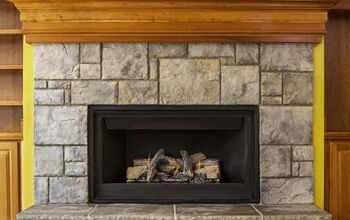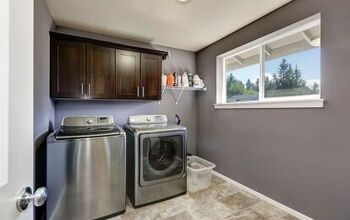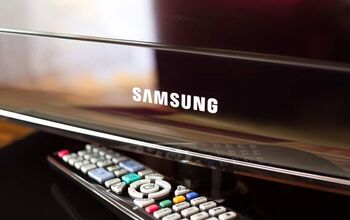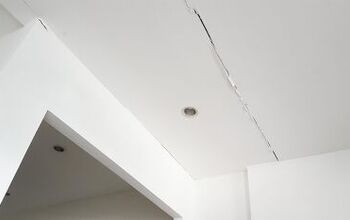Water Heater Keeps Tripping Breaker? (Possible Causes & Fixes)

Very few people volunteer to take cold showers. So when the water goes cold AND your power goes, that’s a double whammy. You reset your circuit breaker, but it goes out again, and you’re not sure what to do about it.
Having to battle between hot water and working electricity can be frustrating. There could be a power supply issue between your electric water heater and your circuit breaker. Pinpointing the exact cause will both prevent an electrical fire and preserve the hot water supply.
You should never begin repairing a water heater before turning off its power supply. However, it’s essential to check the appliance’s power flow before disassembling any parts. A multimeter is a wise investment and a crucial tool in troubleshooting water heater and circuit breaker issues.
Do You Need Water Heater Repair Services?
Get free, zero-commitment quotes from pro contractors near you.

How Does a Water Heater Work?
The water heater provides hot water to the entire household for bathing and household cleaning. It does this by siphoning water through a dip tube and heating it inside the water tank. Once heated, the water rises and moves through the heat-out pipe into the home’s water sources.
All water heaters are equipped with heating elements, thermostats, relief valves, drain valves, insulation, and anode rods. The only difference between the gas and electric water heaters is the power source: it depends on electric power. This is the only instance where water and electricity DO mix.
Why Is My Water Heater Tripping the Breaker?
Electric water heaters use a strong electrical voltage to operate. Therefore, it will often have its own dedicated circuit on the electrical system. Sometimes this power draw can be too much for the breaker, and the system will shut off.
There can be many reasons (or no reason at all) a water heater might trip the breaker. If the breaker continues to shut down after resetting several times, leave the breaker off and investigate. Also, don’t install a higher rated breaker to override the system, as this increases the potential of an electrical fire.
How Do I Find Out What’s Causing the Circuit Break?
There are several common causes for a water heater to trip the circuit breaker. In order to pinpoint them, you’ll need to systematically check all electrical components to see if they are fully functioning. Use the multimeter to measure the proper voltage and electrical flow of each component before attempting a repair.
The most common causes center around three areas: corrupted or damaged parts, damaged or ineffective wiring, and water leaks. Identifying the cause will direct how you approach and correct the problem.
Bad Heating Element
Water heaters have heating elements located at the top and the bottom of the water tank. They are usually made of metal and housed in a protective casing to prevent corrosion. Over time, the casing can split or crack and expose the metal directly to the water supply.
This can short circuit or burn out the element itself, either underheating or overheating the water. You’ll either notice a drop in the water temperature or the breaker or high limit switch will shut off. You should test the heating element’s electrical flow to identify this as the cause.
Make sure the breaker to the water heater is turned off, then loosen the wires from the heating element. Use the multimeter to test the points where the wires attach to the element. A 120-volt reading may mean a cracked casing or corrosion, while zero volts means the element has shorted.
Bad Thermostat
The heater alternates between the two elements to produce hot water for in-home usage. Each element has a thermostat built in to ensure only one is on at any given time. A functioning thermostat keeps the system running properly and the water temperature at a maximum of 180 degrees.
If a thermostat goes bad, the element may fail to shut off and possibly run concurrently with the other element. This causes the heater to exceed the 180-degree temperature and draw more electricity than required. This will subsequently overload the circuit breaker and trip the limit switch, breaker, or both.
You can check the thermostats with the same process used to check the heater itself. After safely disconnecting the power and wiring, use the multimeter to check the thermostat for resistance. Bad thermostats need replacing, though most recommend replacing the heating elements at the same time for best results.
Water Leaks
For the most part, the water heater components prevent water from entering the electrical system. Sometimes, a gasket can fail and open the possibility of water reaching the electrical system and tripping the breaker. This is a very dangerous scenario that could lead to serious electrical shock or fire.
Water connecting with the electrical system usually trips the main breaker automatically. If it doesn’t, shut the breaker off immediately and locate the source of the leak. Once you repair the leak, you can restart the breaker and make sure the water heater is operational.
Internal Wiring
If the heating elements and thermostats check out, there might be an issue with the heater’s internal wiring. You’ll have to check the heater’s wiring for burned connections, damaged wire, or signs of electrical arcs. You will likely smell smoke before you find any visual damage.
As always, make sure to turn off the power to the water heater before you begin troubleshooting. Open the outside panel to locate the water heater’s connection to the house’s wiring. Find and replace any damaged wiring or connectors before restarting the water heater.
External Wiring or Electrical Problem
You’ve checked for water leaks, tested the heating elements and the thermostats, and checked the internal wiring. All of those parts check out fine, but the breaking is still tripping. The issue has now moved from a plumbing problem to an electrical problem.
You’ll likely need an electrician in the long run, but there are some things you can check to diagnose the problem. Check the wiring on the line for broken or loose wires. There could also be a bad connection in the panel, or the breaker itself is worn.
Any of the above issues can result in replacing part or all of the breaker. Be sure to use the same energy rating when replacing the breaker. A higher-rated breaker than the current system will allow more current to flow through and potentially overheat or catch fire.
Water Heater Maintenance
Proper maintenance of the water heater can prolong its life and delay the need for repairs. There are some simple tasks the homeowner can do that can save time and money. Regular maintenance can help your water heater run more efficiently and extend the heater’s life.
Be sure to set the water heater’s thermostat at a safe temperature, preferably 120 degrees for economy and personal safety. Likewise, sediment can settle in the tank and cause the heater to stop working too soon. It’s a good rule of thumb to flush the tank at least once a year.
The anode rod is a crucial part of the water heater, taking on the rust to keep the tank clean. Check and change the rod if you notice an abundance of rust. Finally, test your pressure valve every so often; be sure the water cools first before opening the valve.
Do You Need Water Heater Repair Services?
Get free, zero-commitment quotes from pro contractors near you.

Related Questions
When do I need to call the plumber?
As a new water heater is a significant expense, it’s understandable if a homeowner wants to DIY to reduce costs. Some diagnostic measures and part replacements can be easy to do with the right equipment. However, knowing what needs doing and being able to do it correctly are two different things. You should certainly call a plumber for any repairs outside your scope of expertise or anything they could complete faster. For instance, a homeowner can check voltage and resistance and replace a heating element with little effort. Conversely, replacing a dip tube could be problematic if you’re unskilled at using a blowtorch.Obviously, any repair that requires the presence of more than one person should fall to the plumber. Issues involving the breaker and circuitry will need an electrician’s attention. Ultimately, the homeowner’s comfort level will determine whether or not to call in the professionals.
How do I choose the best water heater?
Choosing the “best” water heater will depend on the size of your home, household, and usage needs. You should aim to get a water heater that is energy efficient, preferably with an Energy Star rating of 3.48 or lower. Between lifetime energy costs and rebate incentives, getting an Energy Star certified heater is a smart, economical choice.Another consideration is the type of water heater. Although the tank style is the most common and the least expensive, tankless units are becoming more popular. Tankless heaters can produce hot water more quickly but may not be cost-effective.Two important factors in choosing a water heater are its necessary water use and its first-hour rating (FHR). Necessary water use estimates how many gallons each household member will need to use over time. The FHR measures hot water produced in the first hour and reflects its efficiency and peak usage capacity.

Stacy Randall is a wife, mother, and freelance writer from NOLA that has always had a love for DIY projects, home organization, and making spaces beautiful. Together with her husband, she has been spending the last several years lovingly renovating her grandparent's former home, making it their own and learning a lot about life along the way.
More by Stacy Randall



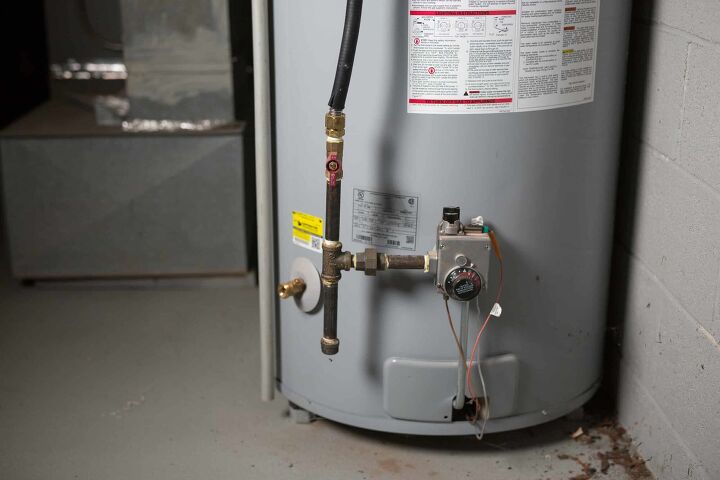






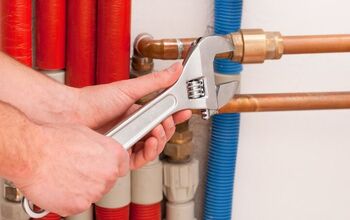
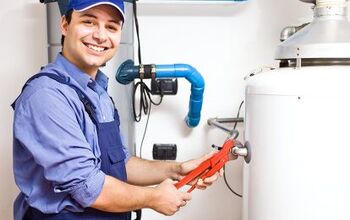
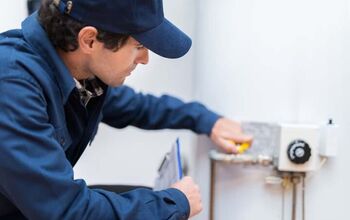
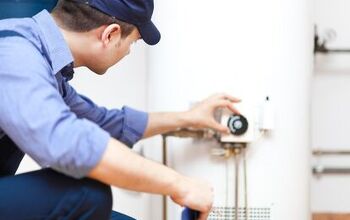
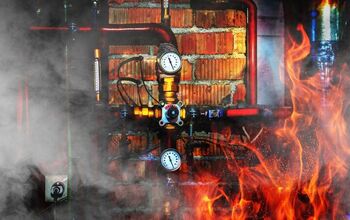
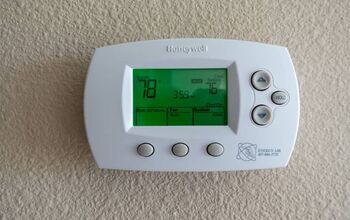
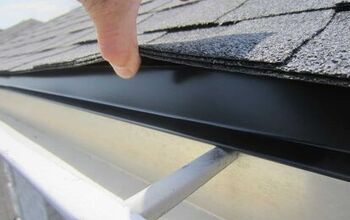
![Standard Dining Room Table Dimensions [for 4, 6, 8, 10 and 12 People]](https://cdn-fastly.upgradedhome.com/media/2023/07/31/9074335/standard-dining-room-table-dimensions-for-4-6-8-10-and-12-people.jpg?size=350x220)
